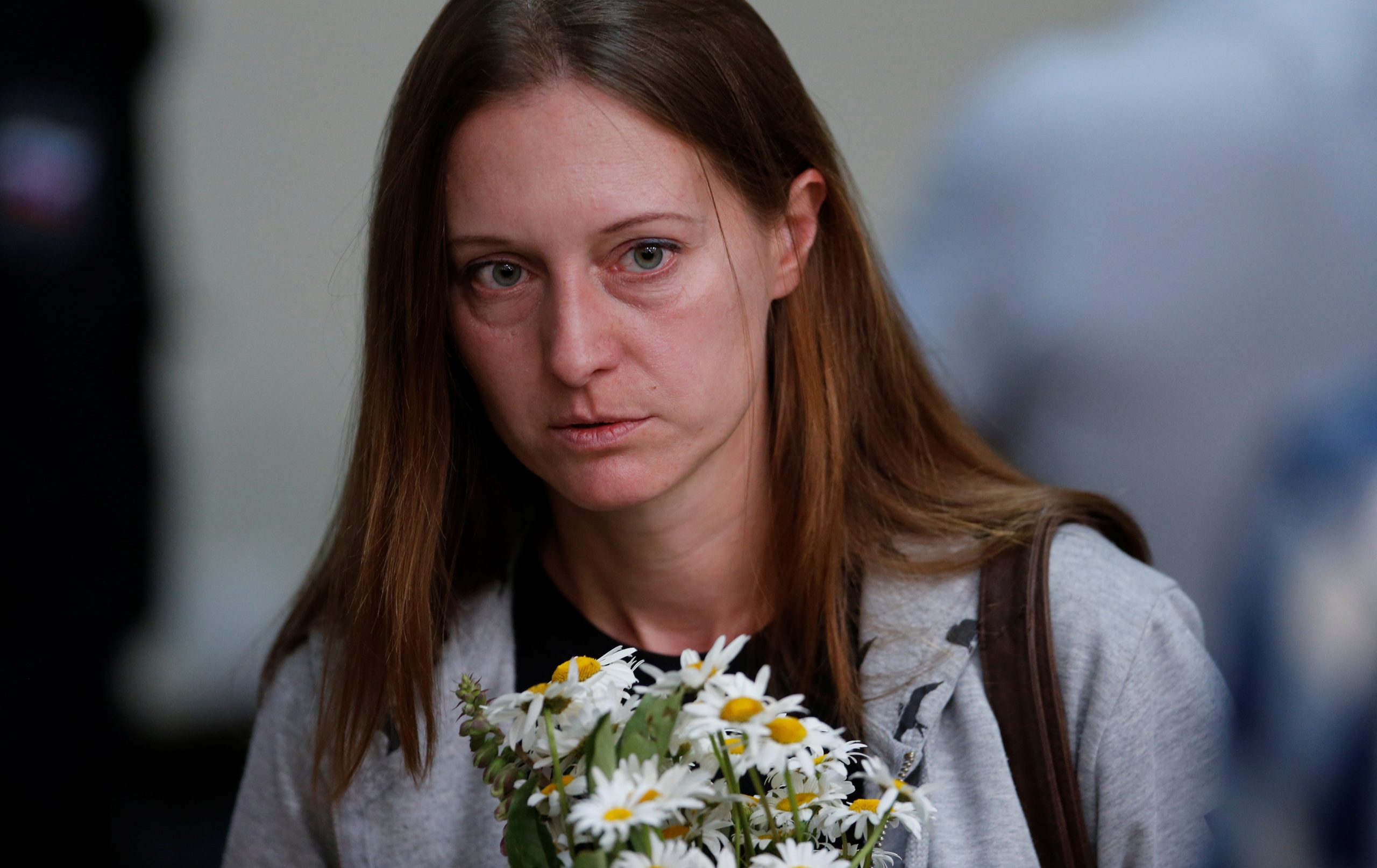© Photo by REUTERS/Anton Vaganov
On the eve of her appeal, a TrialWatch Fairness Report concludes that serious violations marred the trial of Russian journalist Svetlana Prokopyeva.
Ms. Prokopyeva was convicted by a military court of “justification of terrorism” based on comments she made on a radio show and in an article that explored the potential reasons behind a terrorist attack committed by a teenager. The report, authored by attorneys at Covington & Burling LLP, finds that Ms. Prokopyeva’s trial violated her right to freedom of expression and that she was likely targeted in order to discourage criticism of the government. The report gives the proceedings a grade of “D,” remarking that “the court ignored extensive defense evidence and disregarded the apparent flaws in the prosecution’s case.”
Ms. Prokopyeva’s trial took place against the backdrop of a crackdown on independent journalism in Russia, including through the use of “foreign agent” laws and “anti-extremism” legislation. She is also not the only journalist to have been charged with terrorism-related offenses.
The report elaborates on how Russian courts misuse the testimony of experts to support convictions, resulting in a national acquittal rate of just 0.25% in 2019. In particular, the report details how the court denied Ms. Prokopyeva the right to examine the authors of the prosecution’s key expert report at trial, while effectively disregarding defense experts. On this basis, the report finds that the court violated Ms. Prokopyeva’s rights to an independent and impartial tribunal, to be presumed innocent, and to examine witnesses against her. Further, the court’s reliance on the “conclusory assertion of the prosecution’s experts” violated her right to a reasoned judgment. The report also explains how the fact that she was tried by military judges gives rise to reasonable concerns about the court’s independence and impartiality.
The Military Court of Appeal is scheduled to hear Ms. Prokopyeva’s appeal of her conviction on February 2, 2021. CFJ calls on the court to reverse Ms. Prokopyeva’s conviction and order her acquittal.
Background
The charges against Ms. Prokopyeva were based on comments she made about a suicide bombing committed by a teenager against the offices of the Russian Federal Security Service (FSB) in Archangelsk in October 2018. The attacker had written that he planned to attack the FSB because it “fabricates cases and tortures people.” On her radio program, Ms. Prokopyeva asserted that “[t]his bombing . . . better than any column by a political analyst or a Human Rights Watch report, proves that there are no conditions for political activism in Russia.” She further explained that she thought the attacker “saw no other way” to protest, and cautioned that she hoped that the attack would be the “exception.”
Article 205.2 of the Russian Criminal Code criminalizes any “public statement on the recognition of the ideology or practices of terrorism as correct, and in need of support.” Ms. Prokopyeva’s trial turned on whether her words met this standard. Two initial sets of prosecution experts reached conflicting conclusions, so the prosecution commissioned a third expert report. The third set of experts insisted that Ms. Prokopyeva’s comments should be understood to suggest that terrorism was “better” than political activism (an “illogical reading,” the Fairness Report notes). The defense sought to examine this third set of experts at trial, but the request was denied without explanation.
The defense presented expert reports of its own, including one by an author of the official methodology for experts in terrorism cases. They concluded that Ms. Prokopyeva’s statements did not, in fact, justify terrorism. But the court dismissed these experts’ views on the ground that they may have been biased in favor of Ms. Prokopyeva, despite a lack of evidence of any such bias.
The TrialWatch Fairness Report concludes:
- “[N]either the indictment nor the court’s judgment presented any specific quotes from Ms. Prokopyeva’s broadcast . . . that purportedly justified terrorism. Instead, both relied entirely on the legal conclusions of the prosecution’s experts.” By failing to conduct its own legal analysis, the court violated Ms. Prokopyeva’s right be presumed innocent.
- “The court’s refusal to allow the defense to call . . . the authors of the prosecution’s third expert report, to testify at trial violated Ms. Prokopyeva’s right to examine witnesses against her.” In particular, the defense was prepared to examine them as to whether they “lacked the necessary qualifications and competency to conduct the examination” and whether one of the experts “in particular had a personal interest in the outcome of the proceedings” due to the fact that she had filed a defamation claim against Ms. Prokopyeva on the same day her report was submitted.
- The fact that the court failed to ask defense experts “a single question regarding the substance of their reports,” and disregarded those reports on spurious grounds, suggested a lack of impartiality.
For a full legal analysis of the trial and explanation of the grade that has been provided, please see the Fairness Report.
